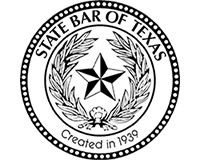
Types of Property Damage After a Hurricane
Throughout history, hurricanes have affected countries across the globe, leading to billions of dollars worth of damages, along with tens of thousands of human casualties. Hurricanes include wind speeds of over 74 miles per hour, and, depending on where they are, may also be called typhoons or cyclones. A hurricane that is entirely harmless on the ocean can lead to considerable property damage. There are many types of property damage following a hurricane; the four most common include damage to roofs, the interiors of homes and businesses, equipment, and public utilities. Those who have suffered property damage after a hurricane might find it beneficial to speak with an attorney if they feel their insurance company is delaying payment, attempting to pay less than the claim is worth, or denying the claim altogether. The attorneys at Gulf Coast Insurance Attorneys, are ready to help you through this difficult time. We know how anxious, stressed, frustrated, and even angry you may feel as you are trying to put your life back together only to deal with a difficult insurance company. We will be your advocate throughout the process, aggressively fighting to ensure your claim is paid promptly, for the amount it is worth.
Hurricane Statistics
The following hurricane statistics are from policyadvice.net:
- The Great Galveston hurricane of 1900 in Texas caused 8,000 fatalities and remains the deadliest natural disaster in American history (Hurricane Katrina caused 1,836 fatalities).
- Hurricane Harvey caused more than $125 billion in damages.
- The area considered the most likely to be hit by a hurricane is Monroe County, Florida
- During 2019, there were a total of 18 named storms, however, only 6 were considered hurricanes.
Download: 10 Steps To Take After Hurricane Property Damage
Having an attorney from Gulf Coast Insurance Attorneys by your side during this time can truly make a difference in when and how much your insurance company will pay you for all the types of property damage after a hurricane. Call (504) 438-4507 today!


When You Face the Total Loss of Your Home Following a Hurricane
There are many different types of property damage after a hurricane: from total loss to severe loss to moderate loss. Losing an entire home to a hurricane is devastating. When your home is destroyed, you naturally think of the lost possessions inside the home—your furniture, your clothing, your photograph, your computers, jewelry, and, most importantly, the sentimental objects that can never be replaced. Once the shock begins to wear off, you must think about where you and your family will live. Will you move in with friends or family temporarily, rent a home, or stay in a motel? The answer to that will likely depend significantly on whether you have hurricane insurance and if you do, how well and how quickly your insurance will pay. Some insurance policies will pay for a place to stay while your home is being rebuilt or repaired, others may not. This is known in your policy as “loss of use,” or “additional living expense,” and pays policyholders the difference between your normal monthly housing cost and the cost of replacement quarters. (if your mortgage was 1,100 per month, and your temporary apartment is $1,900, you would be paid the additional $800 per month).


Recognized Excellence Award-Winning Dedication to Client Success

In Your Time of Need, We’re Here for You Why Choose Gulf Coast Insurance Attorneys?
-
100% Free ConsultationsDiscover your options with a no-cost, no-obligation consultation. We’ll listen to your story, explain your legal rights, and help you make an informed decision about your next steps.
-
Offering Virtual ConsultationsYou don’t need to travel to our office to get started. With virtual consultations, we can discuss your case, answer questions, and provide guidance—all from the comfort of your home or anywhere you prefer.
-
Over $25 Million RecoveredTrust a law firm with a track record of securing over $25 million for our clients. Our team knows what it takes to win, and we bring our experience and dedication to every case, fighting for the outcome you deserve.
-
You Only Pay If We WinWith our contingency fee structure, you face zero financial risk—no upfront costs and no fees unless we successfully secure compensation on your behalf. We’re fully committed to achieving results, and you only pay if we do.
Types of Property Damage After A Hurricane
Perhaps your home only sustained certain damage, such as to the roof, or interior damage due to water, mold, or vehicle and boat damage. Below you will find information on filing an insurance claim for each type of hurricane damage:
- Total Loss—If your home is a total loss, including contents, you will first determine what your insurance policy or policies cover. If you have hurricane insurance as a part of your homeowner’s insurance and flood insurance as a rider, you should be well-covered, so long as your policy limits are generous. If you owe money on your home, your mortgage holder will require a certain level of coverage that usually covers replacement value. You will also want to know how long you have to file a claim, although you will certainly want to do it quickly so you can receive your payment and move on with your life. You will need to ask your agent whether you will need estimates for the repairs, and, if so, how many estimates your insurance company requires. If you are living in temporary quarters, be sure to keep every receipt associated with your expenses. You may receive a proof of loss form from your insurance company, or an adjuster may visit. Either way, the more information you have regarding your damaged possessions—descriptions of items, approximate dates of purchases, and estimates of what it will cost to replace items.
- Roof, windows, and siding damage (exterior)—Just as you will do with a total loss, if you have roof, windows, and siding damage, you will need to read your policy carefully and get estimates for repairs. You will also want to make sure you file your claim as quickly as possible. In this case, however, you may need to make temporary repairs to avoid further damage to your home and contents. As an example, if your roof was damaged and it is still raining, you may need to have your roof repaired as quickly as possible to avoid further damage. You will need to keep every receipt for repairs, whether windows are replaced, your roof is repaired or replaced, and siding is repaired or replaced. Remember, however, that temporary repairs will be a part of your total settlement. This means if you pay a contractor a very large amount of money for a temporary repair job, you may not have sufficient money for the permanent repairs your home needs.
- Interior damage, including doors, walls, and flooring—It is less common to have significant interior damage to your home without at least some exterior damage as well. You could, however, have flood damage to the interior of your home with little to no exterior damage. If you only have flood damage and you do not have a separate flood policy, your homeowner’s insurance is unlikely to pay for the interior repairs. Interior water damage can be insidious; small water spots on a wall or ceiling could turn out to be a much bigger mess behind the wallboard, sheetrock, or wood. As with any claim, check your policy to see if the damage is covered, file your claim quickly, then if your insurance company balks, contact Gulf Coast Insurance Attorneys, to help you get the amount you are entitled to receive.



